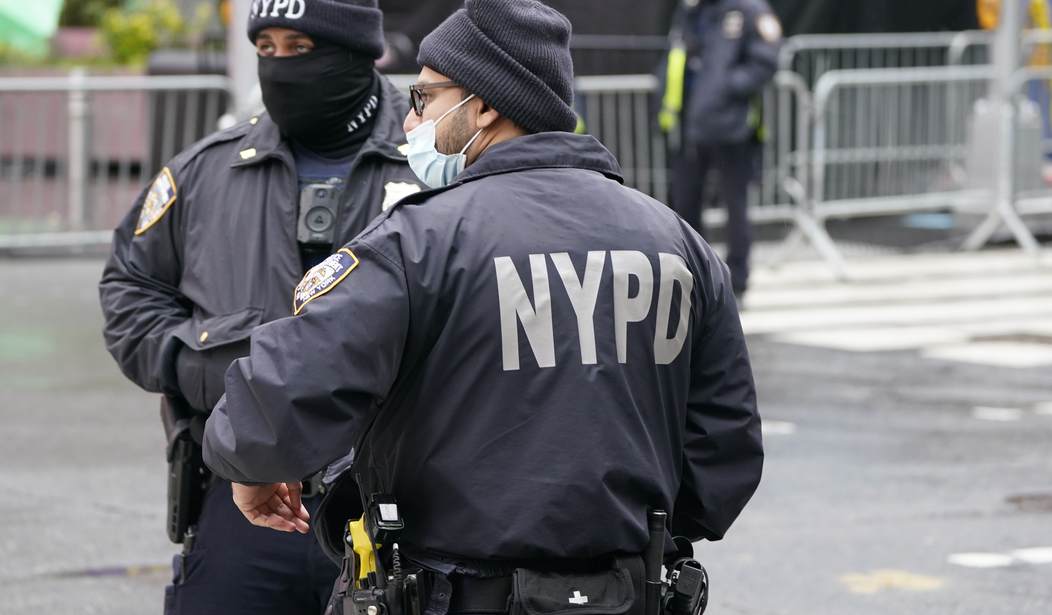The court is right, but given the anti-Second Amendment stance of New York lawmakers, victims of domestic violence and others who are in fear of a violent attack find themselves stuck between a rock and a hard place; police have no duty to protect them as individuals, and the state’s elected leaders are doing all they can to make it impossible for them to protect themselves.
In this particular case, a woman named Dora Howell sued the city of New York and the NYPD after her ex-boyfriend assaulted her and pushed her out of a third-story window, causing significant injuries to her. At the time of the attack, Howell had taken out an order of protection that barred her ex from being near her; a restriction that he completely ignored. As the dissent in the New York Court of Appeals opinion describes:
Passersby found Dora Howell face down on the pavement outside her apartment building, screaming for help and unable to move. Ms. Howell’s knee, pelvis, and hip were all broken, and her spine was fractured. She remained the hospital for over a month undergoing surgeries to treat her extensive injuries.
How did this happen? Unfortunately, such incidents are far too common. Ms. Howell’s ex-boyfriend, Andre Gaskin, dragged her by the hair into his third-floor apartment, a floor above hers, and physically assaulted her.
When Ms. Howell went to the window yelling for someone to call the police to help her, Mr. Gaskin said, “You want help? I’ll send you for help,” and threw her out of the window.
Mr. Gaskin had violently assaulted Ms. Howell before, beginning when she was pregnant with their child. The first time he assaulted her, he threw her on the floor and kicked her stomach, causing her to bleed and require hospitalization. On the basis of that assault, Ms. Howell obtained an order of protection against Mr. Gaskin, requiring him to stay away from and not communicate with her.
Based on Mr. Gaskin’s subsequent conduct, Ms. Howell obtained seven additional orders of protection against him, the most recent of which issued less than two months before Mr. Gaskin threw her out of the window. How did it happen that a woman who obtained eight orders of protection against the same abuser wound up unprotected?
Because protection orders aren’t suits of armor. They’re pieces of paper. Even in New York, where the Domestic Violence Intervention Act supposedly requires law enforcement to arrest those caught violating a protective order, that doesn’t always happen. In fact, the dissenting judge notes that on multiple occasions police responded to Howell’s calls and found Gaskin in her presence, but still failed to take him into custody.
The majority opinion’s answer for that is simple; there’s no way state lawmakers really intended for every person who violates a protective order to be taken into custody (or make cities liable for any harm caused when they fail to do so) given the costs that would entail.
Every day, New York courts issue hundreds of orders of protection in favor of persons at risk of harm. More than 195,000 orders of protection were issued in domestic violence cases in this State in 2021 alone.
This grim statistic undermines the dissents’ conclusion that the legislature intended to abrogate the Cuffy factors or markedly expand the potential for government tort liability by enacting the Family Protection and Domestic Violence Intervention Act of 1994, and its mandatory arrest provisions.
Indeed, that statute’s legislative history provides that it would cause no “fiscal implications” for local municipalities and only appropriated $500,000 “to implement . . . training requirements” and for an initial evaluation (Senate Introducer’s Mem in Support, Bill Jacket, L 1994, ch 222 at 25). Given the numbers discussed above, the cost of potential municipal liability regarding violations of orders of protection would far exceed the amount appropriated and would have a significant impact on municipal finances.
Even with that state law in effect, in other words, police still had no “special duty” to protect Howell from the violence inflicted on her by her ex-boyfriend.
The Court of Appeals decision is consistent with what the federal judiciary has had to say, including the Supreme Court’s decision in Castle Rock v. Gonzales, in which the Court found that a Colorado state law on protective orders did not entitle the individual who had requested one of a to any specific action on the part of law enforcement; these restraining orders only provide a means for arresting the subject of the order after it’s violated.
If the state owes us no special duty to protect our lives, then that makes our right to armed self-defense even more fundamentally important. In New York, however, the anti-2A lawmakers in control of the state legislature have continually tried to make it as difficult and legally dangerous as possible to do so; both before and after the Bruen decision was handed down. We don’t know whether or not Howell ever applied for a concealed carry or even a premises licenses (required to keep a gun in the home in New York City), but it’s entirely possible that she would have been denied by the NYPD even after taking out multiple protective orders, given the routine rejections of applicants who had failed to demonstrate enough “good cause” to meet the subjective requirements of the department’s licensing division.
Even now New York Gov. Kathy Hochul and her anti-2A cohorts in the legislature want police and judges to have the authority to deny someone a carry permit based on subjective standards of things like “good moral character”, while at the same time making it a criminal offense for them to carry for self-protection in a host of publicly-accessible spaces. To add insult to injury, their argument in favor of their anti-civil rights agenda is the bat-guano crazy idea that New Yorkers are better off relying on the protection of police than being able to defend themselves; a silly idea to begin with, but now one that’s been proven yet again to be outright lie thanks to the ruling by the New York Court of Appeals.








